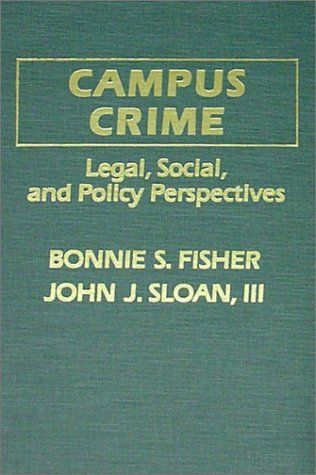
CAMPUS CRIME Legal, Social, and Policy Perspectives. (3rd Ed.)
This third edition underscores that interest in the legal, social, and policy contexts of campus crime has not waned. Among the purposes of this new edition is the desire to share with readers the advancements that have occurred in understanding campus crime, especially the dynamics of college student victimization, and efforts to effectively address campus security issues. Presented in three sections, the first examines the legal context of crime by offering five chapters whose focus is on the Jeanne Clery Disclosure of Campus Security Policy and Campus Crime Statistics Act and its state-level progenies. The chapters acquaint the reader with the genesis and evolution of Clery, the current state of research concerning public awareness and impact, the results and impact of the National Campus Sexual Assault Policy Study, and national-level comparative analysis of state based Clery-style legislation. The six chapters of Section II address topics such as victimization rates of students versus nonstudents; lifestyle theories explaining student victimization; how alcohol use and abuse are correlates to student victimization; an overview of the literature on the sexual victimization of college women; and an analysis of the extent, nature, and impact of stalking and cyberstalking behaviors perpetrated against and by college students. The four chapters of the final section focus on the evolution, organization, and practices of campus law enforcement agencies, the challenges of enforcing alcohol laws, and the challenges presented by high-tech crimes involving the Internet, information systems, and technology. The book’s goal was to bring together authors who could provide the most current picture and a critical analysis of issues concerning the legal, social, and policy contexts of campus crime and security. The text represents the most up-to-date resource for campus adminstrators, law enforcent and security personnel, criminologists, counseling professionals, political scientists, sociologists, lawyers, and policy advocates.